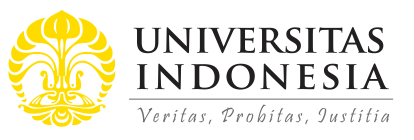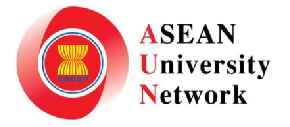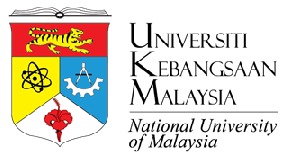
Abstract
Leprosy has a high incidence of physical complications that will impact directly the physiological, economic, and social status of patients. Indonesia has a high burden of the disease, and several leprosy settlements are still spread in the country. Neglasari Village, Sitanala, Tangerang serves as one of the places of residence of people who have had leprosy. A health service initiative known as Identifikasi Tanda-Tanda Mata, Ekstremitas, dan Kulit pada Kusta (KATAMATAKU) was launched as a collaboration of health services among multi-departments (ophthalmology, dermatovenereology, and medical rehabilitation). Sitanala has a relatively high incidence of people who have had leprosy with disabilities of the hand, foot, and eye. As a continuation of this health service and combined with the efforts to improve the welfare of leprosy patients, in November 2019, a multidisciplinary program titled KATAMATAKU Universitas Indonesia, was conducted. This program aimed to determine the demographic data regarding the health, psychological, social, and economic status of the leprosy population at Sitanala The project consisted of a collaborative anti-stigma program by the Faculty of Psychology, Public Health, Social and Political Sciences, Cultural Sciences, Administrative Sciences, and Vocational Educational Program; thematic health program, which supports the improvement of physical abilities and empowerment of former leprosy patients, by the Faculty of Medicine, Dentistry, Nursing, and Pharmacy; thematic economics program, which aims to increase the economic capacity of the leprosy community, by the Faculty of Economics and Business, Mathematics and Natural Sciences, and Engineering. This program enabled the construction of a multidimensional management model, in which every aspect plays important roles to improve the patients’ quality of life.
References
Alam, P., & Ahmade, K. (2013). Impact of solid waste on health and the environment. International Journal of Sustainable Development and Green Economics (IJSDGE), 2(1), 165–168. https://intelligentjo.com/images/Papers/general/waste/IMPACT-OF-SOLID-WASTE-ON-HEALTH-AND-THE-ENVIRONMENT.pdf
Amasuomo, E., & Baird, J. (2016). The concept of waste and waste management. Journal of Management and Sustainability, 6(4), 88–96.
https://econpapers.repec.org/RePEc:ibn:jmsjnl:v:6:y:2016:i:4:p:88-96
Astutik, E., & Gayatri, D. (2018). Perceived stigma in people affected by leprosy in leprosy village of Sitanala, Banten, Indonesia. Kesmas: Jurnal Kesehatan Masyarakat Nasional (National Public Health Journal), 12(4), 178–186.
http://dx.doi.org/10.21109/kesmas.v12i4.1756
Centers for Disease Control and Prevention. (1997). Principles of community engagement (1st ed). Atlanta (GA): CDC/ATSDR Committee on Community Engagement.
Chadar, S. N. & Chadar, K. (2017). Solid waste pollution: A hazard to environment. Recent Advances in Petrochemical Science, 2(3), 41–43.
Clinical and Translational Science Awards (CTSA). (2011). Principles of Community Engagament: Second Edition. NIH Publication No. 11–7782.
Dabrera, T. M. E., Tillekeratne, L. G., Fernando, M. S. N., Kasturiaratchi, S. T. K., & Østbye, T. (2016). Prevalence and Correlates of Leprosy in a High-Risk Community Setting in Sri Lanka. Asia-Pacific Journal of Public Health, 28(7), 586–591. https://doi.org/10.1177/1010539516666360
Dijkstra, J. I. R., Brakel, W. H. V., & Elteren, M. V. (2017). Gender and leprosy-related stigma in endemic areas: A systematic review. Leprosy review, 88, 419–440. https://leprosyreview.org/article/88/3/41-9440
El Darouti, M. A., Hussein, S., Al Tahlawy, S. R., Al Fangary, M., Mashaly, H. M., El Nabarawy, E., ... & Abdel Hay, R. M. (2011). Clinical study of nail changes in leprosy and comparison with nail changes in diabetic patients. Journal of the European Academy of Dermatology and Venereology, 25(3), 290-295. https://doi.org/10.1111/j.1468-3083.2010.03783.x
Ferreira, R. C., Gonçalves, T. X., Soares, A. R. D. S., Carvalho, L. R. D. A., Campos, F. L., Ribeiro, M. T. D. F., ... & Ferreira, E. F. E. (2018). Dependence on others for oral hygiene and its association with hand deformities and functional impairment in elders with a history of leprosy. Gerodontology. 35(3), 237–245. https://doi.org/10.1111/ger.12346
Girdhar, B. K. (2016). Chemoprophylaxis. In: Kumar B, Kar HK. Editors. IAL Textbook of Leprosy. New Delhi: Jaypee Brothers Medical Publishers Ltd. p. 490–495.
Gopa, P. K. (2016). Psychososial aspects in leprosy. In: Kumar B, Kar HK. IAL Textbook of Leprosy. New Delhi: Jaypee Brothers Medical Publishers Ltd.p. 541–545.
Hasnain, R., Queijo, J., Laher, S., & Sandahl, C. (2020). Islam, Leprosy, and Disability: How Religion, History, Art, and Storytelling Can Yield New Insight and Acceptance. Societies. 10(1), 6. https://doi.org/10.3390/soc10010006
Hogeweg, M. (2010). Leprosy and the eye teaching set. International Centre for Eye Health, London. p. 1–41.
Hutahaean, B. S. H., & Sumampouw, N. E. (2018). Pelatihan Peningkatan Self-Esteem pada Mahasiswa Universitas Indonesia yang Mengalami Distres Psikologis. Jurnal Ilmiah Psikologi MIND SET, 9(02), 97–114.
Hutapea, C. D. A., & Mashoedi, S. F. M. (2019). Hubungan antara Optimisme dan Distres Psikologis pada Emerging Adults Miskin di DKI Jakarta. Jurnal Ilmiah Psikologi MIND SET, 10(02), 87–103.
Islam, F. M. A. (2019). Psychological distress and its association with socio-demographic factors in a rural district in Bangladesh: A cross-sectional study. PloS one, 14(3), e0212765. https://doi.org/10.1371/journal.pone.0212765
Kaur, H., & Van Brakel, W. (2002). Is beggary a chosen profession among people living in a ‘leprosy colony’?. Leprosy review, 73(4), 334-345. https://pubmed.ncbi.nlm.nih.gov/12549841/
Kaur, I., Chakrabarti, A., Dogra, S., Rai, R., & Kumar, B. (2003). Nail Involvement in Leprosy: A Study of 300 Patients1. International Journal of Leprosy and Other Mycobacterial Diseases, 71(4), 320.
https://www.proquest.com/docview/216030194?pq-origsite=gscholar&fromopenview=true
Kementerian Kesehatan Republik Indonesia. (2012). Pedoman Nasional Program Pengendalian Penyakit Kusta. Jakarta: Kementerian Kesehatan RI.
Kementerian Kesehatan Republik Indonesia. (2017). Profil Kesehatan Indonesia Tahun 2016. in D Budijanto, Yudianto, B Hardhana & TA Soenardi (Eds.) Kementerian Kesehatan RI, Jakarta. p. 166–169.
Kementerian Kesehatan Republik Indonesia. (2018). Hapuskan Stigma dan Diskriminasi terhadap Kusta. Jakarta: Kementerian Kesehatan RI.
Krishnamurthy, K. V., & Rao, S. P. (1990). A study of leprosy affected beggars in Aska. Indian journal of leprosy, 62(1), 113-115. https://europepmc.org/article/med/2141623
Malik, A. N. J., & Morris, R. W. (2011). The prevalence of ocular complications in leprosy patients seen in the United Kingdom over a period of 21 years. Eye, 25(6), 740–745. https://doi.org/10.1038/eye.2011.43
Matos, F. Z., Andreza-Maria-Fábio Aranha, Á. H., Borges, F. L. M. P., Raslan, S. A., Hamida, F., Veiga, K., & Porto, A. N. (2018). Can different stages of leprosy treatment influence the profile of oral health? Oral status in leprosy. Medicina oral, patologia oral y cirugia bucal, 23(4), e376. https://dx.doi.org/10.4317%2Fmedoral.22220
Menaldi, S. L. S. W. (2019). The Quality of Life of Leprosy Patients in Dermatovenereology Polyclinic of Dr. Cipto Mangunkusumo Hospital Jakarta: Study on Social Stigma. eJournal Kedokteran Indonesia, 6(3), 159-165. https://doi.org/10.23886/ejki.6.10107
Mohammed, S. B., & Sookoo, R. (2016). Nutrient film technique for commercial production. Agricultural Science Research Journal, 6(11), 269-274.
https://www.researchgate.net/publication/309866285_Nutrient_Film_Technique_for_Commercial_Production
Olson, R. J., Braga-Mele, R., Chen, S. H., Miller, K. M., Pineda, R., Tweeten, J. P., & Musch, D. C. (2017). Cataract in the adult eye preferred practice pattern®. Ophthalmology, 124(2), P1-P119. https://doi.org/10.1016/j.ophtha.2016.09.027
Pallagatti, S., Sheikh, S., Kaur, A., Aggarwal, A., & Singh, R. (2012). Oral cavity and leprosy. Indian Dermatology Online Journal, 3(2), 101.
https://dx.doi.org/10.4103%2F2229-5178.96700
Patki, A. H., & Baran, R. (1991, March). Significance of nail changes in leprosy: a clinical review of 357 cases. In Seminars in dermatology (Vol. 10, No. 1, pp. 77-81). https://pubmed.ncbi.nlm.nih.gov/2018724/
Pescarini, J. M., Strina, A., Nery, J. S., Skalinski, L. M., Andrade, K. V. F. D., Penna, M. L. F., ... & Penna, G. O. (2018). Socioeconomic risk markers of leprosy in high-burden countries: A systematic review and meta-analysis, PLoS neglected tropical diseases, 12(7), e0006622. https://doi.org/10.1371/journal.pntd.0006622
Rajan, P., Premkumar, R., Rajkumar, P, & Richard, J. (2005). The impact of hand dominace and ulnar and median nerve impairment on strenght and basic daily activities. Journal of Hand Therapy, 18(1), 40–45. https://doi.org/10.1197/j.jht.2004.10.011
Ramos, J. M., Reyes, F., & Belinchón, I. (2013). Nail changes in recent and old leprosy patients. EMJ Dermatol, 1, 44-52.
https://www.emjreviews.com/dermatology/article/nail-changes-in-recent-and-old-leprosy-patients/
Rao, P. S. S., Mozhi, N. M., & Thomas, M. V. (2000). Leprosy affected beggars as a hidden source for transmission of leprosy. Indian Journal of Medical Research, 112, 52. https://www.proquest.com/docview/195984171?pq-origsite=gscholar&fromopenview=true
Reis, B. M., Castro, S. S. D., & Fernandes, L. F. R. M. (2017). Limitation of activity and restriction of social participation in relation to age range, gender, and education in people with leprosy. Anais brasileiros de dermatologia, 92, 335-339.
https://doi.org/10.1590/abd1806-4841.20175216
Romero, I. B., Rincón, J. R., & Rabell, F. R. (2012). Nail involvement in leprosy. Actas Dermo-Sifiliográficas (English Edition), 103(4), 276-284. https://doi.org/10.1016/j.adengl.2012.05.006
Scharlach, A. E., Kellam, R., Ong, N., Baskin, A., Goldstein, C., & Fox, P. J. (2006). Cultural attitudes and caregiver service use: Lessons from focus groups with racially and ethnically diverse family caregivers. Journal of Gerontological Social Work, 47(1-2), 133-156. https://doi.org/10.1300/J083v47n01_09
Turnip, S. S., & Hauff, E. (2007). Household roles, poverty and psychological distress in internally displaced persons affected by violent conflicts in Indonesia. Social Psychiatry and Psychiatric Epidemiology, 42(12), 997-1004. http://dx.doi.org/10.1007%2Fs00127-007-0255-3
van Brakel, W. H., Peters, R. M. H., Pereira, Z. B. S. (2018). Stigma Related to Leprosy—A Scientific View Part 1 Section 4 Chapter 4.5. International Textbook of Leprosy.
https://m3u9w4p9.stackpathcdn.com/sites/default/files/ITL_4_5%20FINAL.pdf
World Health Organization (WHO). (2016). Global Leprosy Strategy 2016–2020. World Health Organization.
World Health Organization (WHO). (2018). Blindness and vision impairment. World Health Organization.
Zhang, M., Zhang, J., Zhang, F., Zhang, L., & Feng, D. (2018). Prevalence of psychological distress and the effects of resilience and perceived social support among Chinese college students: Does gender make a difference?. Psychiatry Research, 267, 409-413. https://doi.org/10.1016/j.psychres.2018.06.038
Recommended Citation
Irawati, Yunia; Menaldi, Sri Linuwih SW; Harini, Melinda; Wahyuni, Luh Karunia; Alwin, Wanarani; Dwiranti, Astari; Menaldi, Adhityawarman; Luzanil, Sonny Tirta; Matsurah, Qaishum; ., Dadun; Kurniawan, Rico; Ruwaida, Ida; Wicaksono, Gunawan; Sahid, Muhammad Hidayat; Rahmayanti, Febrina; Priscilia, Florentina; Fitriana, Anis; Rahayu, Tri; Susiyanti, Made; Andayani, Gitalisa; Bani, Anna Puspitasari; Daniel, Hisar; and Lestari, Yeni Dwi
(2021).
A Multidimensional Welfare Status of Leprosy Patients Living in a Suburban Area.
ASEAN Journal of Community Engagement, 5(1), 71-104.
Available at: https://doi.org/10.7454/ajce.v5i1.1088
Included in
Arts and Humanities Commons, Business Commons, Life Sciences Commons, Medicine and Health Sciences Commons, Physical Sciences and Mathematics Commons, Social and Behavioral Sciences Commons







